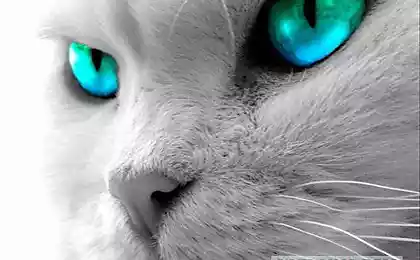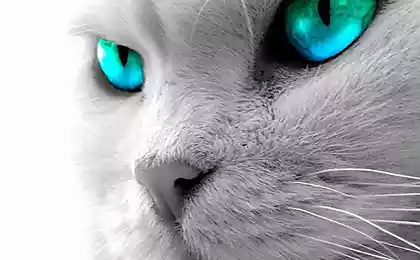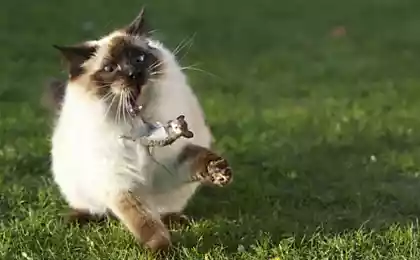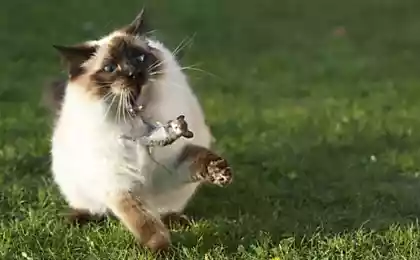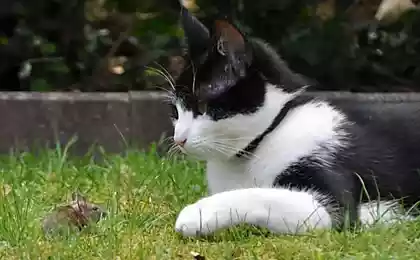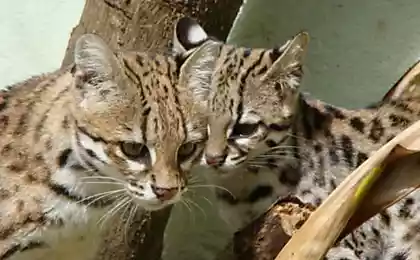388
Find out why Your cat is a finicky eater
In cats, despite their predatory nature, left a lot of bitter taste receptors, which also might work differently than human.
Where we have animals appeared able to distinguish different tastes? It would be reasonable to assume that different taste buds help to find more suitable food, differentiated taste sensitivity to accurately determine the quality of the food, to distinguish the more nutritious less nutritious and more harmful from the less harmful.
For example, by the sense of sweet you can understand where more contains carbohydrates, which are known to encompass much of the available energy. On the other hand, the bitter taste can indicate toxins that are particularly often found in plants.
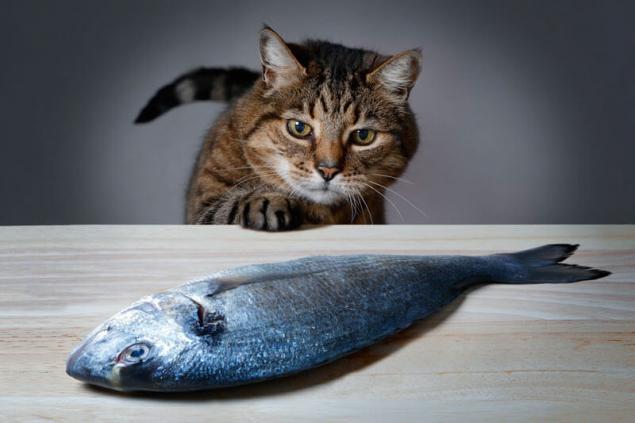
In accordance with this hypothesis, one would expect that the presence or absence of certain taste receptors depend on the diet of a species.
If you take cats that don't feel sweet, here all it is: a gene responsible for "sweet" receptor, broke down in the course of evolution, and to fix it there was no need, because the cat eat almost exclusively meat, and sensitivity to carbohydrates for them, so to speak, is irrelevant. (Similarly, do not feel the sweet taste and many other carnivorous animals, such as sea lions and spotted hyenas.)
It would seem that the same could be expected from the "bitter" receptors, because hazardous substances with the same taste, as we said, usually of plant origin. But no – according to researchers from the center of Monelle in his article in PLoS ONE, ordinary domestic cats there are as many as 12 genes encoding receptor proteins for bitter taste.

But, maybe not all of them work? Weiwei lei (Lei Weiwei) and his colleagues tested these genes for functionality in cell culture, cells which have supplied the receptor proteins of the cats reacted to these substances (just used 25 bitter molecules, in various combinations).
So we found out that 7 of the 12 genes quite work, that is, encode a protein capable of binding at least one bitter substance. As to the other five, they just haven't checked; it is possible that cats do all the "bitter" genes. published
P. S. And remember, only by changing their consumption — together we change the world! ©
Join us in Facebook , Vkontakte, Odnoklassniki
Source: www.nkj.ru/news/27213/
Where we have animals appeared able to distinguish different tastes? It would be reasonable to assume that different taste buds help to find more suitable food, differentiated taste sensitivity to accurately determine the quality of the food, to distinguish the more nutritious less nutritious and more harmful from the less harmful.
For example, by the sense of sweet you can understand where more contains carbohydrates, which are known to encompass much of the available energy. On the other hand, the bitter taste can indicate toxins that are particularly often found in plants.

In accordance with this hypothesis, one would expect that the presence or absence of certain taste receptors depend on the diet of a species.
If you take cats that don't feel sweet, here all it is: a gene responsible for "sweet" receptor, broke down in the course of evolution, and to fix it there was no need, because the cat eat almost exclusively meat, and sensitivity to carbohydrates for them, so to speak, is irrelevant. (Similarly, do not feel the sweet taste and many other carnivorous animals, such as sea lions and spotted hyenas.)
It would seem that the same could be expected from the "bitter" receptors, because hazardous substances with the same taste, as we said, usually of plant origin. But no – according to researchers from the center of Monelle in his article in PLoS ONE, ordinary domestic cats there are as many as 12 genes encoding receptor proteins for bitter taste.

But, maybe not all of them work? Weiwei lei (Lei Weiwei) and his colleagues tested these genes for functionality in cell culture, cells which have supplied the receptor proteins of the cats reacted to these substances (just used 25 bitter molecules, in various combinations).
So we found out that 7 of the 12 genes quite work, that is, encode a protein capable of binding at least one bitter substance. As to the other five, they just haven't checked; it is possible that cats do all the "bitter" genes. published
P. S. And remember, only by changing their consumption — together we change the world! ©
Join us in Facebook , Vkontakte, Odnoklassniki
Source: www.nkj.ru/news/27213/

